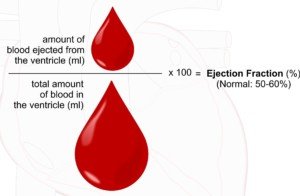
If you have chronic heart failure, you need to implement these five changes that will ease the burden of this disease.
Chronic heart failure is a permanent condition. Once you’re diagnosed, you must live with it.
There are many things you can do to manage this progressive condition, says Beth Davidson, DNP, past president of the American Association of Heart Failure Nurses.
Living with Chronic Heart Failure Drilldown
Ejection Fraction

Shutterstock/ellepigrafica
“Know your ejection fraction (EF), which is the amount of blood ejected from the left ventricle of your heart with each beat,” says Davidson.
“Ask your healthcare team if you are on all the appropriate treatments.”
For example, depending on one’s medical history, absence or presence of other conditions and stage of CHF, medications can raise the EF. Even certain kinds of exercise can do this.
But keep in mind that medications and exercise cannot restore normal EF or reverse heart failure.
Be Proactive

Freepik.com/Peoplecreations
“Keep all your medical appointments and communicate changes/symptoms with your team,” says Davidson.
“Long-term term follow-up is important to manage the condition over time.”
Report even the smallest changes or anything that seems out of place.
For example, if your doctor wants you to report even one pound of weight gain, then do so. Nothing is ever trivial when it comes to CHF.
Comply with Medications

Shutterstock/Masha Petrakova
“Take your medications as prescribed, as adhering to your medical regimen can help reduce the risk of death and hospitalization.”
This means take them at the prescribed times during the day, and never skip any with the idea that “one time won’t hurt.”
Take up Exercise

Freepik.com
It’s never too late to commit to an exercise program. Just because you can’t run, hike or do pushups doesn’t mean that exercise can’t be very worth your while.
Davidson says that exercise can help improve CHF symptoms. An example is that of feeling less bushed after doing housework or from extended walking at a store.
Exercise should be aerobic and weight bearing (strength training).
Exercise is not built into your day. You need to dedicate a time slot to structured physical movement such as pedaling a stationary bike and working with small dumbbells or tension bands.
Incorporate Lifestyle Changes

Shutterstock/Bogdan Vija
Davidson urges heart failure patients to maintain an ideal body weight, quit smoking, keep sodium intake to below 3,000 mg/day and manage stress.
These suggestions sound obvious, but many people don’t incorporate them, or, they think they are when they’re actually not.
For example, they may be ingesting much more sodium than they think. You’d be amazed at what foods are loaded with sodium. It all adds up. Read nutrition labels!
Finally, you should keep up with your vaccinations, namely for flu, pneumonia and COVID-19.
 Beth Davidson is a nurse practitioner specializing in heart failure, based in Nashville, TN, and former director of the Heart Failure Disease Management Program at TriStar Centennial Medical Center in Nashville.
Beth Davidson is a nurse practitioner specializing in heart failure, based in Nashville, TN, and former director of the Heart Failure Disease Management Program at TriStar Centennial Medical Center in Nashville.
 Lorra Garrick has been covering medical, fitness and cybersecurity topics for many years, having written thousands of articles for print magazines and websites, including as a ghostwriter. She’s also a former ACE-certified personal trainer.
Lorra Garrick has been covering medical, fitness and cybersecurity topics for many years, having written thousands of articles for print magazines and websites, including as a ghostwriter. She’s also a former ACE-certified personal trainer.









































